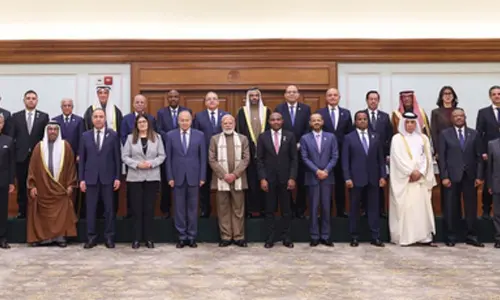Spirituality is freedom from slavery

Generally, we tend to get attached to the things and beings we live with.
Generally, we tend to get attached to the things and beings we live with. An interesting point with regard to material objects, is that when we love a living being, we expect them to reciprocate our love.
But with material things, our love is utterly selfless, without any expectation. The cherished object does not even know how much you are attached to it.
You are attached to it; it is not attached to you!
Suppose a thief comes and steals my treasured object, the object will, most happily, go with him.
It makes no difference to it, whether it remains with me, another person or all by itself. One day this thought occurred to a Mahatma.
He reflected, "Why am I so attached to objects? I take so much care of them, but they do not care about me. They are happy and satisfied without me. If they can remain without me, why cannot I remain without them?"
We are so dependent on things and beings; but what did we bring with us when we were born? Not even a cup of coffee!
Now we say that we cannot function without a cup of coffee or tea in the morning! We have cultivated these addictions; we were not born with them. Yet they have the power to make us dance.
Spirituality is freedom from slavery and dependence on the world of material objects.
Yes, objects are there, they are valuable, they are necessary, they fulfil our needs; therefore, we must take care of them.
But, unfortunately, instead of us possessing them, they possess and control us. A householder is one who holds a house; but in our case the house, holds us!
There are two types of dependence – physical and psychological. For example, when I am hungry, I will eat food; this is a natural physical dependence on food.
But if there is no food and my worry over it becomes an obsession, it is psychological dependence.
We display the same attachment and dependence with beings, be they our relations or our pets. Not being attached does not mean that we do not love them. Loving and being attached are quite different.
The nature of attachment is such that either you become totally dependent on them or you make them dependent on you. This dependence is called attachment.
Some mothers think that loving their toddler means physically holding him all the time. You do not even allow him to put his foot on the ground! That is not love.
On the other hand, allowing your child to stand up and walk, even though he may initially stumble a few times, is real love. So, love and attachment are very different. Do not be attached.
How can we develop healthy relationships? The best example is our two hands. Put them together as though in a clap. They are together, and yet at the same time, there is an almost invisible gap between them.
Whenever you like, you can release your hands – you are not bound. Your relationships should be like this – that you are close together, but at the same time, there is some space.
We are together; yet there is some distance, some freedom also. If you love someone, you set him or her free. We should know how to detach and how to be together. This is spirituality.
Swami Tejomayananda














